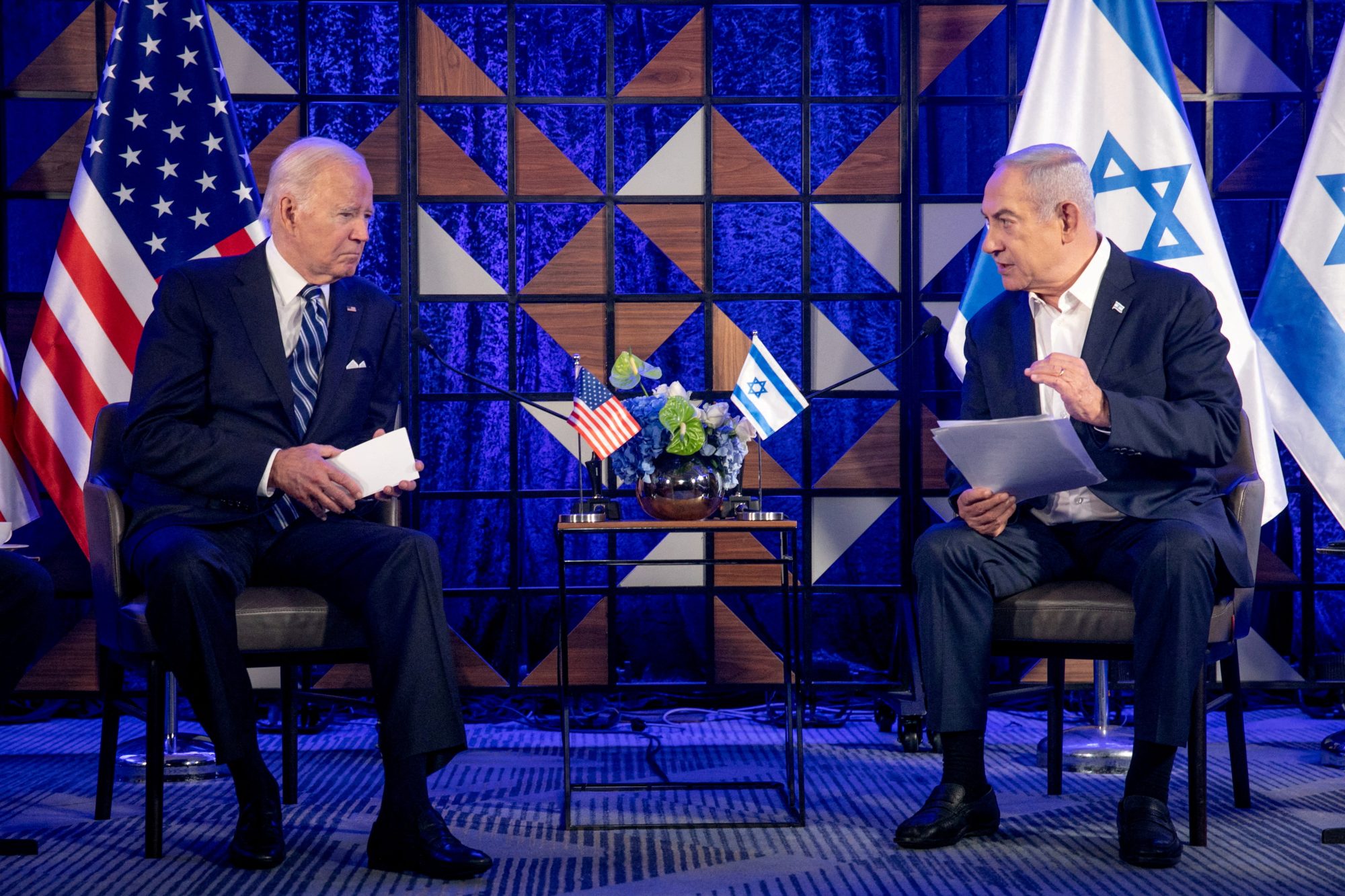
Just 72 hours after President Biden all but threatened to cut off US support for Israel, the Israeli military marked the Oct. 7 massacre’s six-month anniversary by announcing its withdrawal of forces from southern Gaza.
The optics suggest a surrender to White House pressure to prematurely end the campaign to destroy Hamas, though Israeli officials insist its largest division, including commandos, is just getting a planned and much-needed rest after four months of intense fighting in Gaza’s second-largest city, Khan Younis.
But whether this is a strategic reset under American duress or a tactical realignment ahead of an eventual ground operation to destroy Hamas’ four remaining battalions in Gaza’s southernmost city of Rafah, what should worry Jerusalem the most is how its enemies perceive its actions — from Tehran to Beirut to the tunnels under Rafah where Hamas leaders are hiding.
While the world has been consumed by last week’s tragic and mistaken Israeli strike on a World Central Kitchen aid convoy, Israel’s military and intelligence officials have been consumed by the potential for a major escalation with Iran and Hezbollah — two enemies with a lot more destruction potential than four Hamas battalions in southern Gaza.
Israel cannot afford to lose military support from the United States at such a critical hour.
Iran, the world’s leading state sponsor of terrorism, has pulled the strings on every fire set across the Middle East since well before Oct. 7 — and continues to orchestrate daily attacks on Israel from southern Lebanon, Syria, Iraq, Yemen and the West Bank.
Tehran has used these past six months of regional escalation as a cover to race forward its nuclear-weapons program, betting correctly that between Biden’s re-election worries and Israel’s multifront war, no one would take much notice.
Last week, Israel took out senior Islamic Revolutionary Guard Corps leaders meeting at their Damascus headquarters — the largest blow to Iran’s regional-terror coordination since the killing of Qassem Soleimani.
With Iran threatening to retaliate by launching missile and drone strikes on Israel — potentially from Iranian territory — and Israel needing US support for what might follow, tactical disagreements in Gaza take a back seat to strategic threats from Iran.
Israeli officials insist the Sunday withdrawal of Israel’s 98th Division was planned well before the WCK tragedy.
These soldiers do, in fact, need rest and refitting — and military objectives in Khan Younis have been met.
Israeli forces will retain full control of the passage that separates north and south Gaza, which offers Israel an easy launching pad for special operations like the recent surprise raid on Hamas leaders operating inside Gaza City’s Al-Shifa Hospital.
Israel, meanwhile, needs US support in pressuring Egypt into a new security arrangement along the Gaza border — including an end to tunnel smuggling — and eventually in finalizing evacuation plans for civilians in Rafah ahead of any future ground operation.
Tactical adjustments to appease the White House need not indicate any change in strategic objectives.
The problem for Israel, however, is that in the Middle East, perception is reality.
Look at the chessboard from Tehran’s point of view: Biden is giving Iran a $10 billion sanctions waiver and free flow of oil to China, offering carrots to the Houthis in Yemen amid nonstop attacks in the Red Sea and holding Israel back from military operations in southern Lebanon to destroy Hezbollah’s capabilities near Israel’s northern border.
Now comes a decision that looks a lot like backing down from Hamas destruction in Gaza, too?
To the extent Tehran perceives Israel to be weak, wholly dependent on the United States to execute military operations and susceptible to American pressure to reverse course on its security promises, the ayatollah will be emboldened to escalate on all fronts.
Such a perception will also reassure Hezbollah leader Hassan Nasrallah, who believes Israel lacks the will and capability to strike back harder in Lebanon despite daily terror attacks that have forced 100,000 Israelis to evacuate their homes in the North.
And most tragically to admit on the six-month anniversary of the attack, such a perception makes it less likely Israel will secure the return of all its citizens Hamas took hostage — at least not without giving its leader, Yahya Sinwar, everything he needs to reconstitute power in Gaza.
What Israeli leaders say and do in the next 48 hours matters more than what they’ve said and done in the last 48 hours.
What assurances can be provided that Israel remains committed to an operation in Rafah and Hamas’ ultimate destruction?
What consequences will be promised should Iran attack Israeli territory in the coming hours or days?
What Israeli operations will be conducted — on any and all fronts where Iran fights — that put Tehran and its proxies back on their heels?
And what steps will the White House and Congress take to make sure Tehran believes the United States still has Israel’s back?
The answer to these questions will determine Israel’s fate — not the timing of any single move in Gaza.
Richard Goldberg, a senior adviser at the Foundation for Defense of Democracies, is a former National Security Council official and senior US Senate aide.














